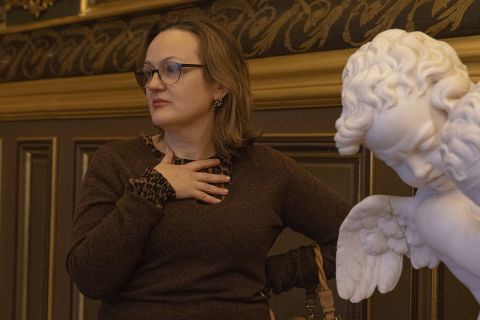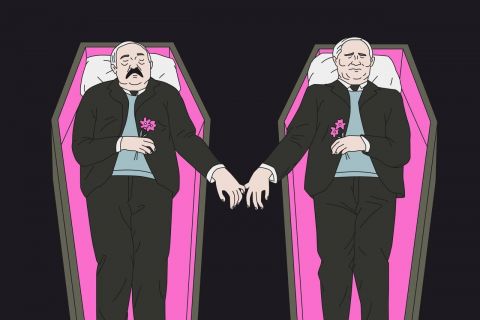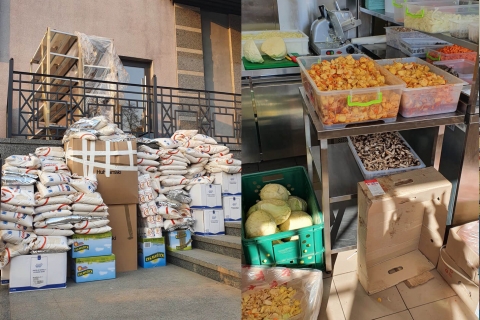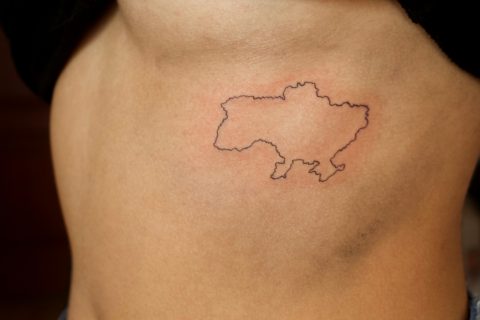
Family Matters: How a Volunteer Organizes Weddings in the Time of War
When the war broke out, the government facilitated the procedure of obtaining a marriage certificate. Now, couples can get officially married not only by employees of register offices but also by other state agents, to wit, police officers and the military. Such a slackening did the trick. In the first 50 days of the war, 22 thousand couples married — a rather big figure for spring.
Olena Yaroshenko has been a wedding planner for almost ten years. For the last six years, she’s been doing it for free, organizing weddings for internally displaced persons, the veterans of the war in the east of Ukraine, and the active-duty military. The volunteer told Bird in Flight how she organized weddings in just two days and how today’s newlyweds are different from those she helped to start families six years ago.

A volunteer from Khmelnytsky.
— My life changed drastically way before the 24th of February. Before the late April of 2014, all I did was plan weddings: I had my own agency and managed a school for coordinators, planners, and soon-to-be-married couples. Then came the Donetsk offensive, and after it, the first wave of ISPs in Zaporizhzhia. We wanted to help them but weren’t sure how to do it right. I managed to get hold of a space that we could turn into an outreach hub for ISPs. It became the first hub in Zaporizhzhia — and the only one at the time.
The displaced young men I met at the hub shared their stories with me. Some had fiancées waiting for them at home, others registered their marriages in a hurry but still hoped to have their wedding ceremonies. A multitude of such stories persuaded me to help couples to marry during the war. First I acted as a consultant and then started to collect wedding accessories and decorations for them. Such was the beginning of the “Love Wins” project, which has been helping the military down the aisle since 2016.
I have two teams, in Zaporizhzhia and Khmelnytsky. They do full-service wedding planning and host ceremonies themselves. We have five photographers, two florists, and several makeup artists and hairdressers. Some are always with us, and others engage when they are needed. Everything is free of charge, but if a couple wants anything special, they can pay for it themselves.
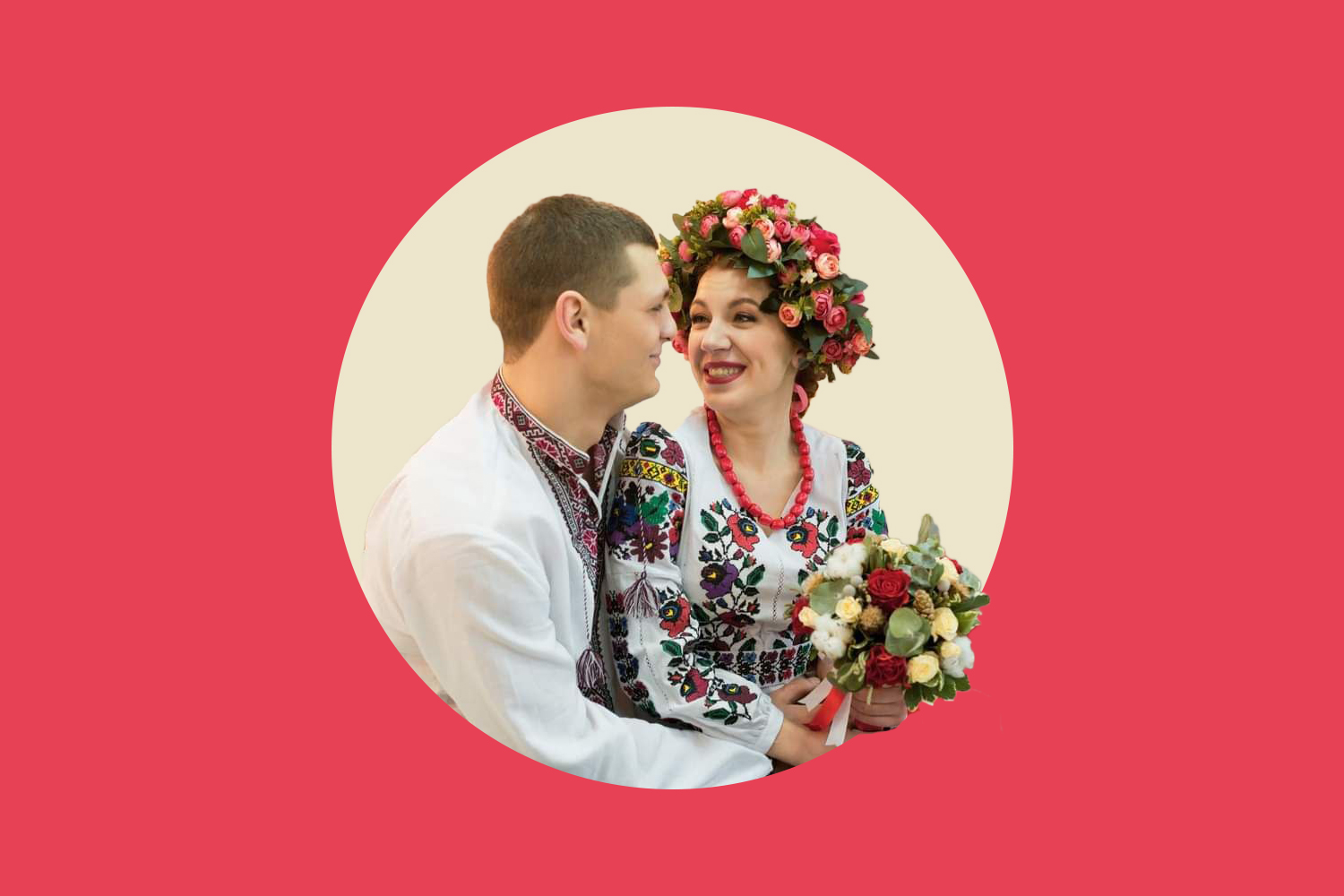
Most of the weddings we organize are in Zaporizhzhia and Khmelnytsky. Sometimes we help couples in the neighboring regions. I usually attend the weddings myself.
From time to time, I get messages from future brides serving in the army or doing volunteer work. They ask, “I’m going to my boyfriend, to the frontline. We are getting married. Might there be anything you could help us with?” Of course, we can help. I don’t travel to such weddings but plan them remotely: I see to all the arrangements, from several wedding dresses to choose from to glasses, rushnyks, icons, a set of candles to light and pass a family fire, a church kit, and something for the couple’s future baby. Just recently, I shipped two boxes of wedding dresses to the Zaporizhzhia region. My team is already there: they will help the bride get ready. I’ve planned the event timeline. As a general rule, a bride comes to a beauty salon, then a florist meets her with a bouquet near a register office, and she is also presented with the korovai. And after the official ceremony, the newlyweds have a photoshoot with a photographer. The same evening, the new husband goes back to the front line. We have several frontline weddings on our record too: in the vicinity of Avdiivka, near Mariupol, and in the Luhansk area.
We have several frontline weddings on our record too: in the vicinity of Avdiivka, near Mariupol, and in the Luhansk area.
When I started posting about the project on Facebook, I was in for a pleasant surprise: the owners of wedding salons in Ukraine and abroad started sending me gowns free of charge. The span is stunning: France, Germany, Israel, America, England, Poland, salons in Kyiv and Zaporizhzhia — all of them are willing to help. Right now, I’m talking with a salon in Khmelnytsky that wants to donate new dresses from previous collections or on display in store windows for our brides.
We have almost a hundred gowns stored in our office. It’s quite a lot, but we would be happy to have a wider choice of size L and larger dresses: we only have five now.
After their ceremonies, the brides usually give the dry-cleaned dresses back. This is their only expense: it’s just that I wouldn’t be able to afford to have so many gowns dry-cleaned. Although if the cut allows, I wash dresses by hand.
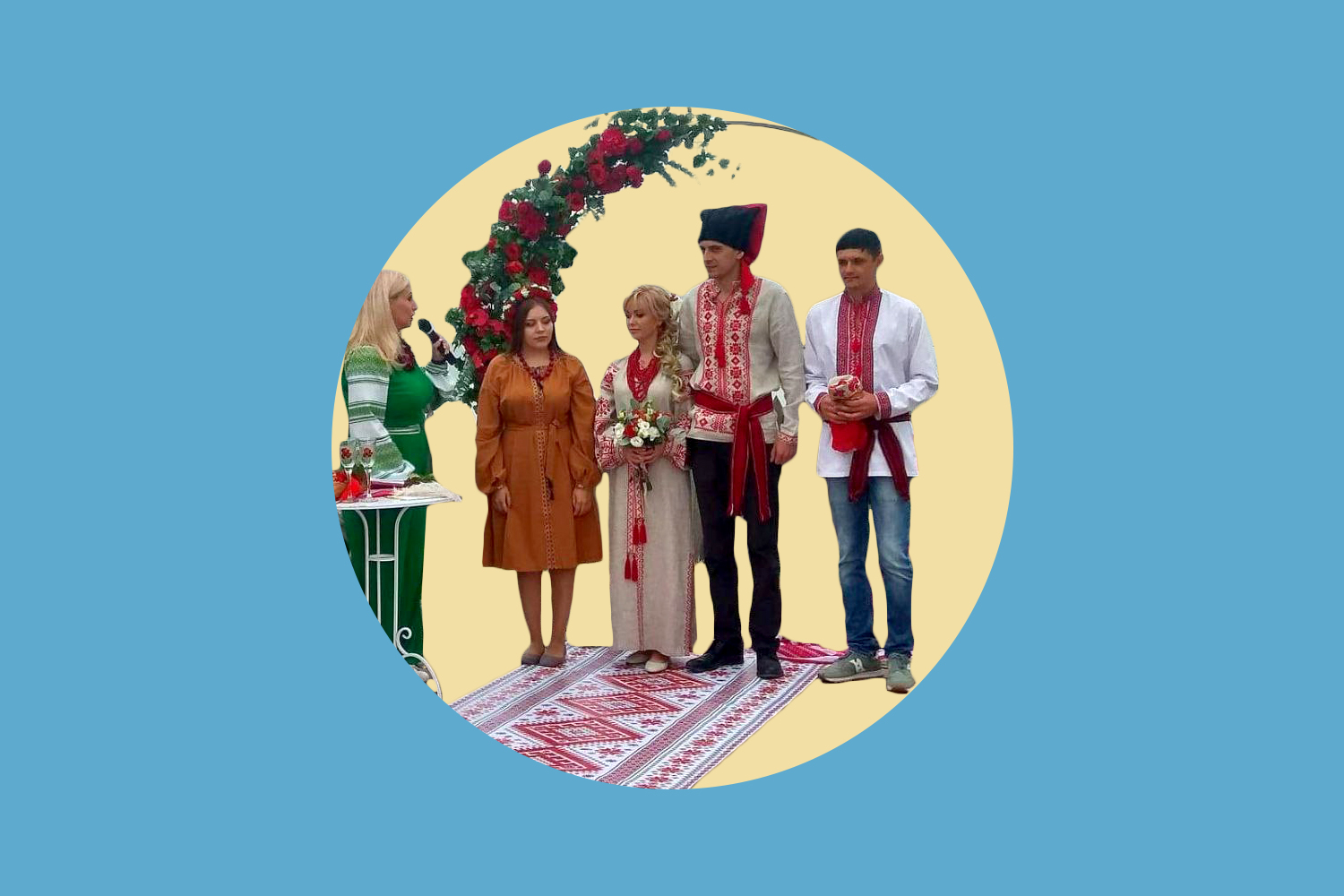
A few years ago, we organized a wedding which often comes back to me. It is a sad story with a happy ending. Two orphaned brothers lost their home and had to set up shelter down a manhole near a department store. They spent two years there. In 2014, they joined the army. When he came back, one of the brothers met a girl he had once loved. She was not married but had a child. When the couple decided to marry, they came to me: back then, they didn’t even have money to rent an apartment. We took on the job. One of the best restaurants in Zaporizhzhia provided magnificent catering services, and we found a gown for the bride. The newlyweds were happy.
Three years ago, a girl from Russia met a Ukrainian soldier. It was a very romantic story of our digitized time. They met on Smule, an app that lets you connect with people and sing karaoke duets. A year later, the girl came to Zaporizhzhia, and we hosted the most beautiful wedding ceremony with a rite of passage for the bride to become a Ukrainian. There is no such rite, so we had to invent one. The ceremony, the marriage registration, and the ritual took place in a church in the Zaporozhian Sich. The wedding was conducted by a military chaplain.
To wed a Ukrainian groom and a bride from Russia, we came up with a rite of passage into Ukrainianhood.
The rite went like this: we brought earth from Mother Khortytsia and covered the bride’s cheeks and hands with it, and then we washed them with the water from Father Dnieper. To end the rite, I asked, “Do you let go of your country, do you pluck out your roots, do you let the Ukrainian land into your heart, and do you promise to love it and protect it?” She did. She let go.
Then we tied the newlyweds’ hands with a rushnyk, and they took a dirk (the masculine symbol) and a korovai (the feminine one) and shared the latter with the guests. The bride’s parents watched the wedding via video link. The entire ceremony was in Ukrainian. Now, the girl is a volunteer in Zaporizhzhia, and her husband is in the army. She is distraught because it’s hard to talk to her parents: while her mother understands everything, her father, an Airborne Forces veteran, does not.
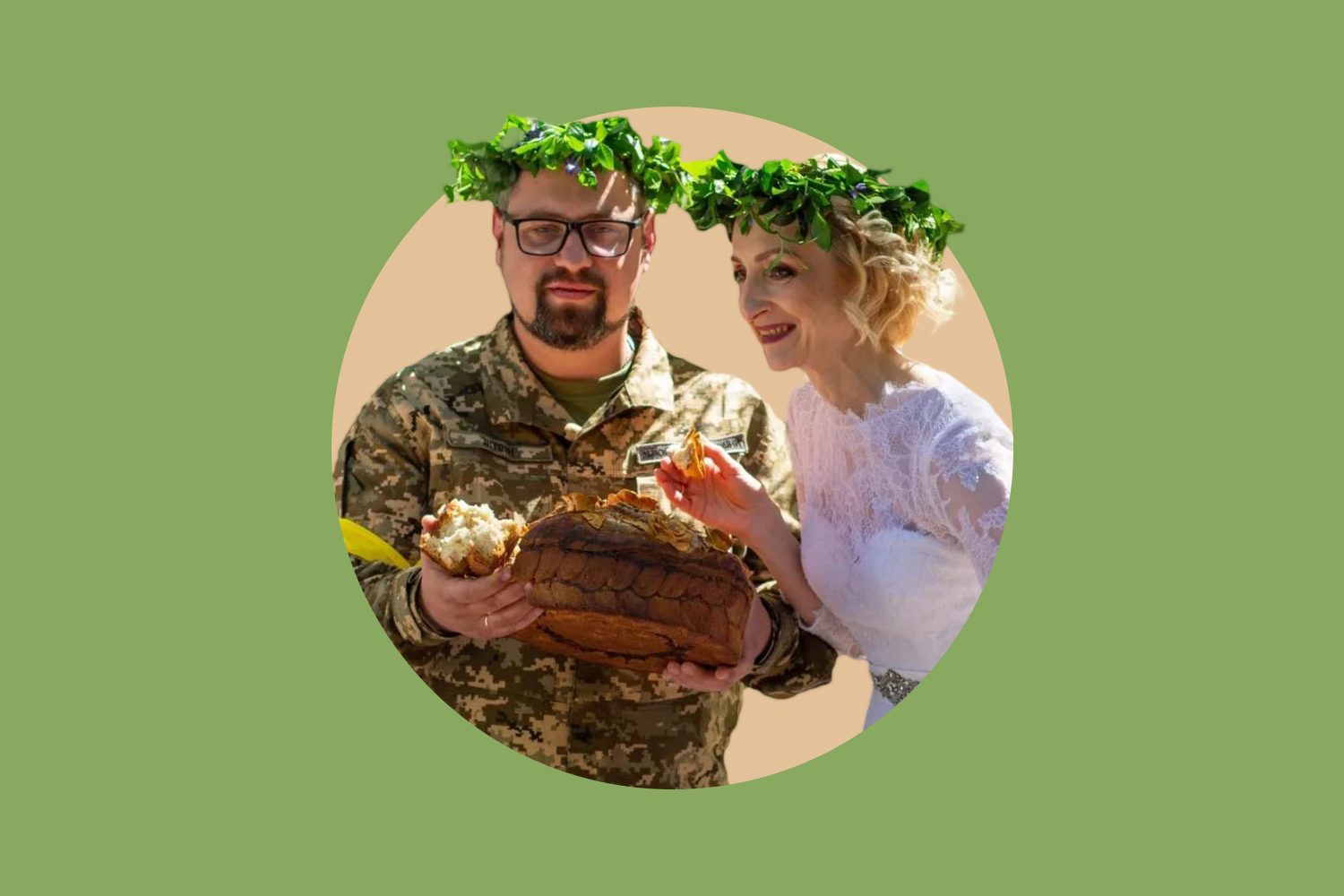
Why organize weddings in the time of war? In 2014, a lot of young men joined the army who weren’t even twenty. Practically teens, they plunged into a nightmare. Their lives are black-and-white, and weddings bring color into them. A wedding becomes a sort of anchor that keeps one up on the front line. And coming back from war to their families gives men a chance to quickly mentally adapt to life in peace.
Weddings bring color into the black-and-white lives of soldiers.
Although since the 24th of February, many have had quite different motives. I have couples coming to me who have lived together for a dozen years. Now, with deployment ahead, they want to formalize their relationships. If anything happens to one of the spouses, their family will be eligible for a gratuity and benefits.
I try to follow the couples whom I helped with the weddings. We are friends on social media with quite a lot of them. I see them have children and raise them. And it saddens me so much if they get divorced.
Now, it’s my husband who is the breadwinner. He is in the military. I volunteer and coordinate the work of the ISP outreach center. My mission is to share the magic. This is my way of saying thank you to heroes.
New and best
